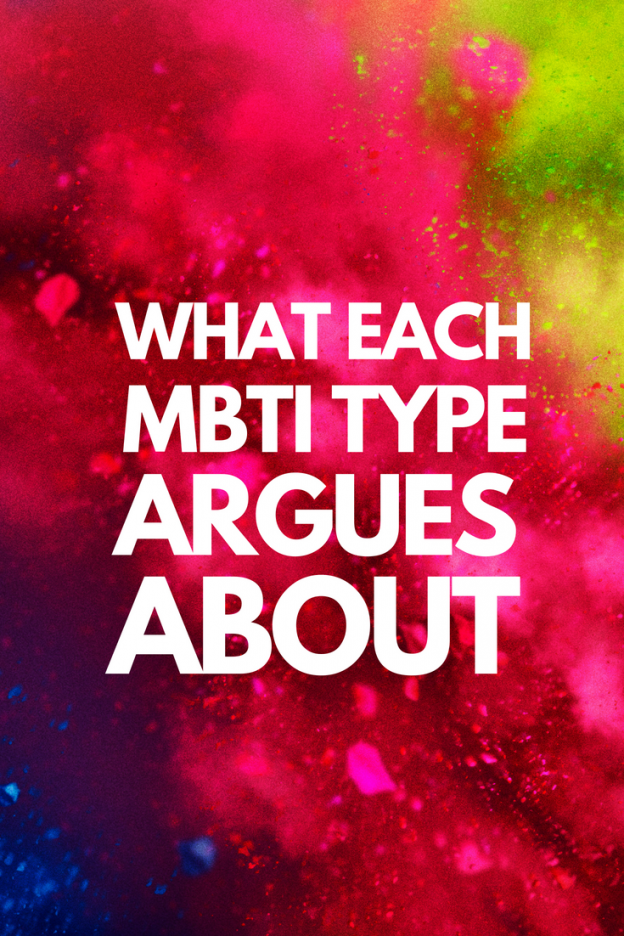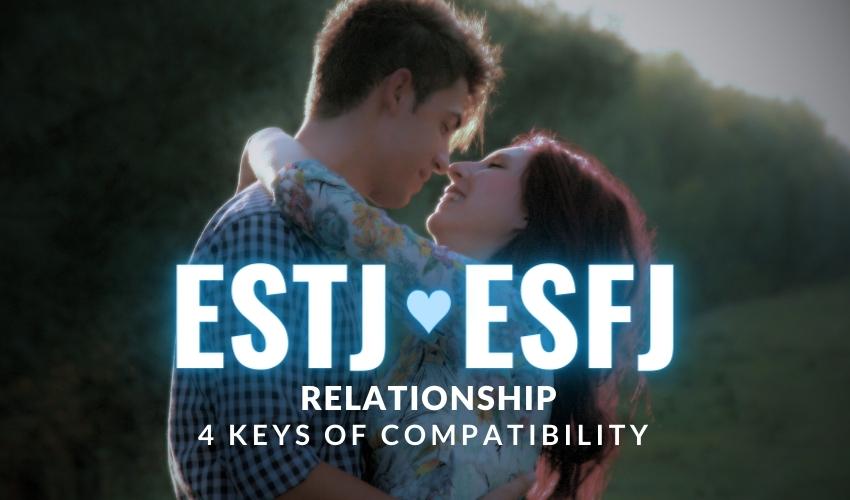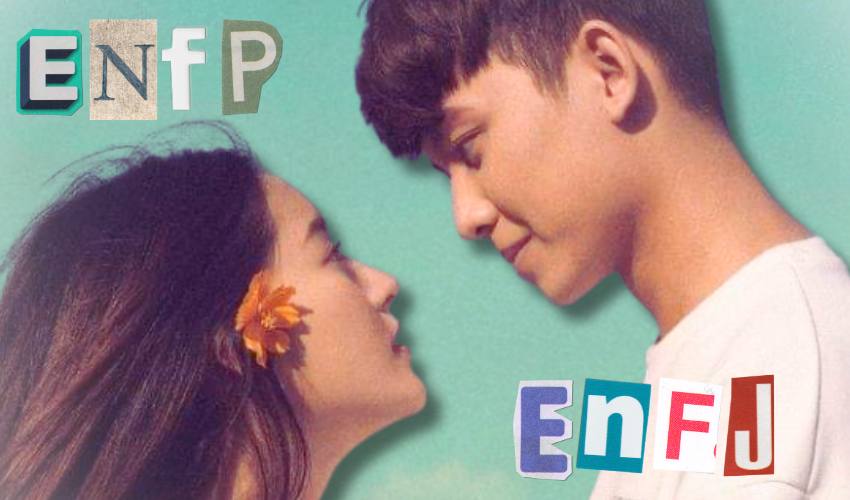[dropcap]S[/dropcap]ome MBTI types are more argumentative than others. While some personalities avoid getting into it, others actively instigate because they enjoy squaring off in a debate and the art of verbal sparring. Here is a look at how and what each Myers-Briggs personality is likely to argue about.
INFJ
Arguments and disputes are draining and saddening to the INFJ who is a type that desires to take a diplomatic approach to avoid conflict as much as they can. When arguments become too personal and overwhelming, it can reduce the INFJ to tears or induce an outburst of vehement rage. Because they are so tactful and non-confrontational, INFJs do not often get into arguments but when they do it is usually over petty misunderstandings or in response to unfair criticism or personal attacks directed at them. They are more likely to argue on someone else’s behalf or for a cause or ideology in which they are passionate for.
INFP
INFPs are capable of thinking logically like INTP but they will generally be biased towards what they feel to be right even if that defies conventional logic. They will often have some emotional investment in what they argue for and so they may easily lose their composure in the process. INFP’s personal values will often trump objective reason and logic when it conflicts with their core ideals and beliefs. This can make INFPs appear difficult, uncooperative and irrational. The moral aspect often weighs heavily in the calculus of their reasoning which may often serve as the basis of their disputes with others who violate what they subjectively deem as right or wrong.
INTJ
INTJs rarely lose their temper and can argue dispassionately without getting emotional involved in the dispute. They make their case, with a focus on simplifying as much as needed to ensure crystal clarity of communication. INTJs are likely to argue over what they view as incompetent, inefficient or inaccurate. They expect people charged with important responsibility to perform with sufficient level of ability and they can be very critical or confrontational when they screw up at INTJ’s expense. This may be especially the case, if INTJ is subordinate to incompetent management.
INTP
It’s not so much that INTP loves to argue but rather to debate. When someone says something that is factually or conceptually wrong, they cannot help but speak up and it is one of the few reasons for which INTP may become confrontational or outspoken. INTPs enjoy the intellectual back-and-forth of debate and letting the truth be excavated and revealed through verbal exchange. Arguments are a guilty pleasure because on the one hand, it is intellectually satisfying when their argument wins the day, but even if they are proven wrong, they appreciate the fact that they have been disabused of their error. So it is generally a win-win.
ENFJ
Harmony-loving ENFJs don’t like to argue and will instinctively try to defuse a dispute by taking a middle ground approach in an attempt to reconcile both sides of the divide. Personal attacks against their character and moral integrity are liable to invoke their wrath however. At that point, the normally long-suffering and cuddly ENFJ will let their claws come out and proceed to set the record straight with the other person. ENFJs strive to be understanding and avoid making personal attacks on others just as they would hope others would do for them. In the midst of a disagreement, ENFJs will seek to acknowledge where the other person is coming from whether or not they actually approve.
ENFP
Apparently, ENFPs have the capacity to lay the smack down when they argue. Amid disputes in which the ENFP becomes righteously indignant, they may rely on their Te function and proceed to introduce a deluge of facts and proofs to bear in making their case effectively. ENFPs are normally sanguine and friendly but will fiercely defend their values when they feel a line has been crossed or that they have been wronged in some way. The normally sensitive ENFP can become highly insensitive and their understanding of human psychology allows them to push buttons and manipulate their adversary emotionally.
ENTJ
Because ENTJs have such strong opinions and ideas of how things should be and what is needed, arguments are bound to be a rather common occurrence in their lives. They are not inclined to back down easily or walk away from a situation without obtaining resolution. They may negotiate however and broker a compromise just so they can settle and move on. ENTJ may often argue over their unmet expectations by others or what others may view as overbearing and controlling tendencies on the part of the ENTJ. ENTJs like to be in the director’s chair and their agenda may sometimes clash or encroach on other people’s sensitivities.
ENTP
ENTPs are among the types most fond of a good debate. Even though ENTPs can really get into it, there is typically no malice or ill will behind their words. For them, it is just a mental exercise and oftentimes do not recognize or see it as an argument. Because they are so good at seeing an issue from many different angles, ENTPs can effectively argue from a perspective they do not truly believe in. Furthermore, they can be very crafty and persuasive thanks to their style and intellectually off-center charisma. ENTPs will most often get into philosophical feuds where they will typically err on the side of logical consistency supported by a bounty of analogies while entertaining alternate and interesting theories and possibilities.
ESTJ
ESTJs rely on facts and logic and so arguments based on theories and emotions will hold little sway or salience for them. The ESTJ can be very difficult to persuade or convince with anything that is not anchored in reality. Ideas that defy what is empirically evident will generally be dismissed as foolish nonsense. ESTJs can be very staunch and may get into arguments over what they perceive as challenges to their authority or knowledgeability. They have a strong sense of how things ought to be based on precedent and structure and tend to think they know the best course of action for many situations. Their views will be predicated on facts and data and so getting them to change their perspective will require just that.
ESFJ
ESFJs avoid many disputes and will often sidestep them through appeasement, deflection or complete ignoring of the points and reasoning behind another’s argument. ESFJs are absorbed with their own perspective which is couched in their visceral feelings on the matter and what seems to them the most group-validated perspective. They have little interest in revising their approach or going against the grain unless it is mandated by a group authority. Thinking types may try to call ESFJ out for their logical inconsistency and lack of authentic principles. Doing so may be to no avail since ESFJs are not wired to develop those qualities easily.
ISTJ
ISTJs are likely to argue about facts and details in which they feel authoritative on. ISTJs often manage to maintain a composed demeanor despite what they feel while engaging with emotionally triggered people. Normally, when someone questions or disputes the veracity of an ISTJ’s assertions, ISTJ may take offense but can make their points and rebuttals without being aggressive. But when people persistently second guess them, ISTJ may double down at some point and take a no-nonsense approach dispensing with facts and strong logical arguments.
ISFJ
ISFJ tends to argue about other people’s carelessness and lack of consideration. Since ISFJs are among the most conscientious of all the MBTI types, they are inclined to take personal offense to people who do not show sufficient consideration or respect for them, their sacrifices and their belongings. They expect people to put things back the way they got them and to pick up behind themselves so when they find themselves being taken for granted it will likely lead to a dispute over responsibilities and obligations.
ISFP
ISFPs are not crazy about debates as it is often difficult for them to organize their thoughts well enough to make an effective argument. It is also a source of frustration and a drain on their energy and spirit. ISFPs may mostly get into arguments revolving around criticism and attempts by others at restricting or controlling their lives. ISFPs are often left unsatisfied at how well they’ve articulated their point and may feel dismayed by it’s futility or blow up in frustration.
ISTP
ISTPs can enjoy getting into debates where they sharpen their wits against that of others. They can argue dispassionately without injecting emotion even though they may feel deeply and earnestly for what they are arguing for. Ultimately ISTPs are able to make their points and leave other people to decide for themselves. They like to express their opinions but do not necessarily worry about persuading others to join their side.
ESTP
ESTP is likely to get into arguments centered around power struggles and perceived disrespect. It is likely that someone else will initiate the dispute in response to ESTP having slighted them in some way or did them dirty. ESTP is typically sanguine and doesn’t always realize when they’ve offended someone. When arguments arise, they are almost always willing to engage and may often stoop to childish levels to win the argument. Their competitive nature makes it hard for them to lay down and take an “L” especially in a forum of insults.
ESFP
ESFPs are happy and energetic but can be fiery and temperamental when embroiled in a dispute. They dislike intellectual arguments but will passionately defend what they believe is right and also their personal integrity. Because they care about validation from others, ESFPs are sensitive to criticism and may become highly defensive in response to anyone who tries to rein them in or judge their way of life even if it happens to be a self destructive one.
Subscribe and stay posted!
related posts:
- The Role of Each MBTI Type in the Apocalypse
- The Biggest Source of Inspiration For Each MBTI Type
- How Each MBTI Type Responds To Criticism
- The Defense Mechanism Each MBTI Personality Is Likely to Use
- The Cognitive Bias Each MBTI Type Is Probably Guilty Of
- The Logical Fallacy You Likely Use Based On Your Myers-Briggs Type
- How Each Myers Briggs Type Deals With Grief
- How Each Myers Briggs Type Reacts To Conflict
- ISFJ and ISTJ in love: 5 Essential Dynamics of their Relationship - February 24, 2024
- ENTP and ENTJ in love: 6 Critical Dynamics of Their Relationship. - February 18, 2024
- ESTJ and ESFJ in love: 4 Key Aspects of their Relationship. - February 12, 2024






Right so istps don’t get angry about anything…